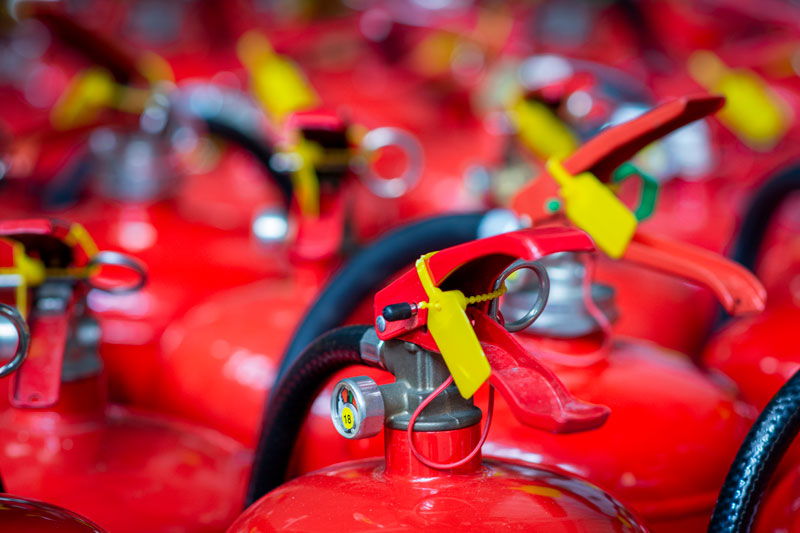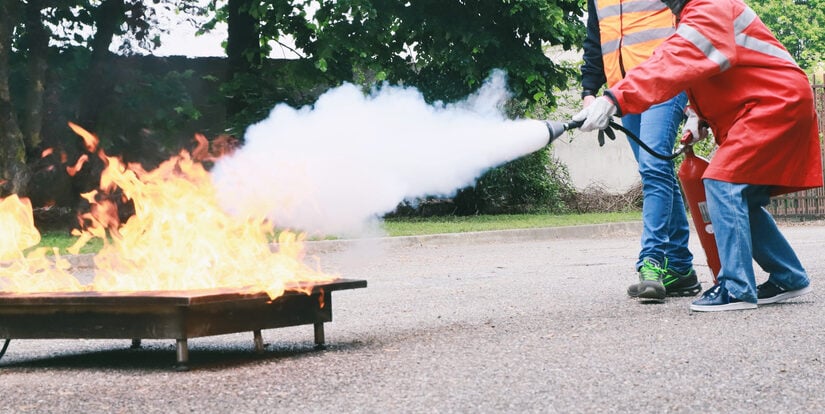Tuesday 16th April 2024
Boat fires have killed 30 boaters in the last 20 years. A fire on board, most of the time, can be preventable. Proper maintenance, regular inspections, and adherence to safety protocols significantly reduce the risk of fire. Ensuring electrical systems are up to date, monitoring fuel systems for leaks, and having fire extinguishers readily accessible can mitigate potential hazards. By prioritising prevention and encouraging awareness, we can work towards eliminating fires and preserving lives on the water.
Carbon Monoxide on Boats
Many people are unaware of the effects, symptoms and dangers of carbon monoxide (CO). Known as The Silent Killer, it is a colourless, odourless, tasteless gas which is highly toxic to humans and animals. The only way to detect CO is with an audible carbon monoxide alarm.
CO is generated by the incomplete combustion of fossil fuels. Most commonly associated with appliances such as; boilers, heaters, hobs and generators. Even routine activities like cooking or keeping warm can potentially lead to a build up of this deadly gas. It is important to ensure that all appliances are properly maintained and regularly serviced to minimise the risk of carbon monoxide poisoning.
Recognising the symptoms of carbon monoxide poisoning is also vital for staying safe on board. Symptoms such as headaches, dizziness, nausea, weakness and confusion may indicate exposure to elevated levels of carbon monoxide. It’s essential for boat owners and passengers to be aware of these signs and to take immediate action.
Fire Extinguishers for Boat Safety
There are different fire risks on boats so it is essential that you have the correct extinguishers to deal with the different types of fire that may occur. Regular maintenance of all your electrical appliances and engine are important to help prevent potential fire hazards.
Powder fire extinguishers are suitable for an outdoor fire on a boat, such as an engine fire. Engine fires on boats can involve a variety of fuel sources, including gasoline, diesel, oil, making powder extinguishers suitable as they can extinguish a wide range of fire types. However, they are not recommended for indoor use due to reduced visibility. The water mist fire extinguishers would be ideal for an indoor boat fire. Water mist extinguishers are versatile; suitable for use on Class A and B fires as well as fires involving electrical equipment. They leave no residue and are environmentally friendly.
Smoke Alarms for Boat Safety
Smoke alarms detect smoke and sound an alarm to alert people on board of a fire. In a marine environment where fires can spread rapidly and evacuation options may be limited, early detection is critical. Boat owners should ensure that smoke alarms are installed in key areas to make sure a boat fire can be detected as soon as possible. Key areas include sleeping quarters, engine compartments, and galley areas where fire hazards are most prevalent.
Maintenance and testing of smoke alarms is important to ensure proper functionality to get alerted in the event of a fire. It’s recommended to test your alarms monthly, and to clean your alarms regularly as a build-up of dust can impact their performance.
When selecting smoke alarms for your boat, make sure to choose models specifically designed for boats. These are designed to withstand the unique challenges posed by constant exposure to moisture, saltwater, and vibration. It’s also wise to consider the size and layout of your vessel and determine the appropriate number and placement.

Smoke Alarms for Boats
UltraFire ULLS10 – https://www.safelincs.co.uk/ultrafire-ulls10-10-year-longlife-battery-optical-smoke-alarm/
FireAngel 6620 – https://www.safelincs.co.uk/fireangel-fa6620-r-10-year-lithium-optical-smoke-alarm/



